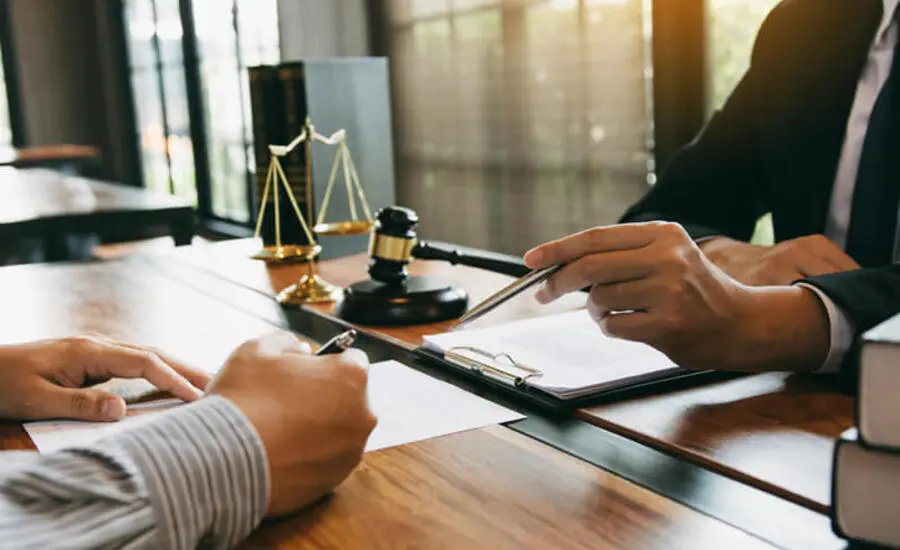An injured party in Daytona Beach and other locations can claim a personal injury claim to hold the irresponsible party financially responsible. It can cover a range of incidents, including car accidents, medical malpractice, and slip-and-fall accidents. The claim seeks financial compensation for medical bills, missed wages, and other related expenses.
While local regulations may vary, the basics of pursuing personal injury lawsuits in Daytona remain broadly consistent with general practices. Understanding these fundamentals can help you navigate the complexities of the legal landscape in this part of Florida.
Key Takeaways
- Understand the basics of personal injury claims.
- Learn the steps to take immediately after an injury.
- Discover the importance of gathering evidence and documentation.
- Explore tips for dealing with insurance companies.
- Get insights into the legal process of filing a personal injury lawsuit.
Steps to Take Immediately After an Injury
- Seek medical attention. This will protect you and document your injuries officially, which is essential information for your claim.
- Report the incident to the appropriate authorities or management: Whether it’s a workplace accident or a car crash, making an official report can provide the necessary documentation.
- Collect contact information of witnesses, if any: Eyewitness accounts can serve as compelling evidence in your favor.
- Record the accident site and your injuries using pictures or videos: Visual evidence can prove the incident’s circumstances.
Taking these critical steps can lay the foundation for a solid personal injury claim, ensuring that you have comprehensive documentation to support your case.
The Importance of Evidence and Documentation
When filing a personal injury claim, evidence documentation is essential. Official reports, medical records, and witness statements can significantly strengthen your case. These documents provide a factual basis for your claims and can be used to validate your account of the incident.
For a more scientific perspective on the importance of evidence, you can refer to this research article on the role of documentation in legal cases. Maintaining meticulous records of your proof will make you more likely to receive just compensation for your injuries.
Navigating the Insurance Companies
Managing insurance firms requires a lot of time and work. They can try to bargain with you for less than you deserve. Insurance adjusters are taught to reduce claims as much as possible, frequently utilizing methods that can be frightening or unclear. It’s crucial to know your rights and the value of your claim to avoid being shortchanged.
Resources can provide additional tips on handling insurance claims effectively. By arming yourself with knowledge, you can better negotiate and secure the compensation you deserve.
Filing a Personal Injury Lawsuit
If talks with insurance companies don’t work out, filing a personal injury lawsuit could be the next step. It involves several stages, including filing a complaint, discovery, and possibly going to trial. Understanding the legal process can be daunting, so seeking legal advice is often beneficial. Local statutes may also come into play in location-specific cases, making professional guidance essential.
Real-Life Examples and Outcomes
Real-world examples can offer insightful information on the filing process for personal injury claims. For example, the overwhelming evidence and paperwork presented by the claimant led the court to award hefty damages in the historic case of “Doe vs. City Hospital.” These examples underscore the importance of thorough documentation and professional legal representation. Learning from these cases, you can better understand your claim’s potential outcomes and strategies.
Tips for Maximizing Your Settlement
Take into consideration these suggestions to make sure you are paid what you deserve:
- Always follow through with medical treatments: Regular attention from a medical professional helps you heal and records your injuries over time.
- Be cautious with social media posts that could be used against you: Updates that appear innocent at first glance could be misinterpreted and exploited against you.
- Consult with legal professionals specialized in personal injury law: Expert advice can help you navigate the legal complexities and maximize your settlement.
Conclusion
Handling a personal injury claim involves several steps and thorough documentation. Understanding the process and being proactive at each stage can significantly improve your chances of receiving fair compensation. Even though the journey may be difficult, well-researched proof and expert legal advice can help. Remember, being informed and prepared is your best defense in navigating personal injury claims successfully.
